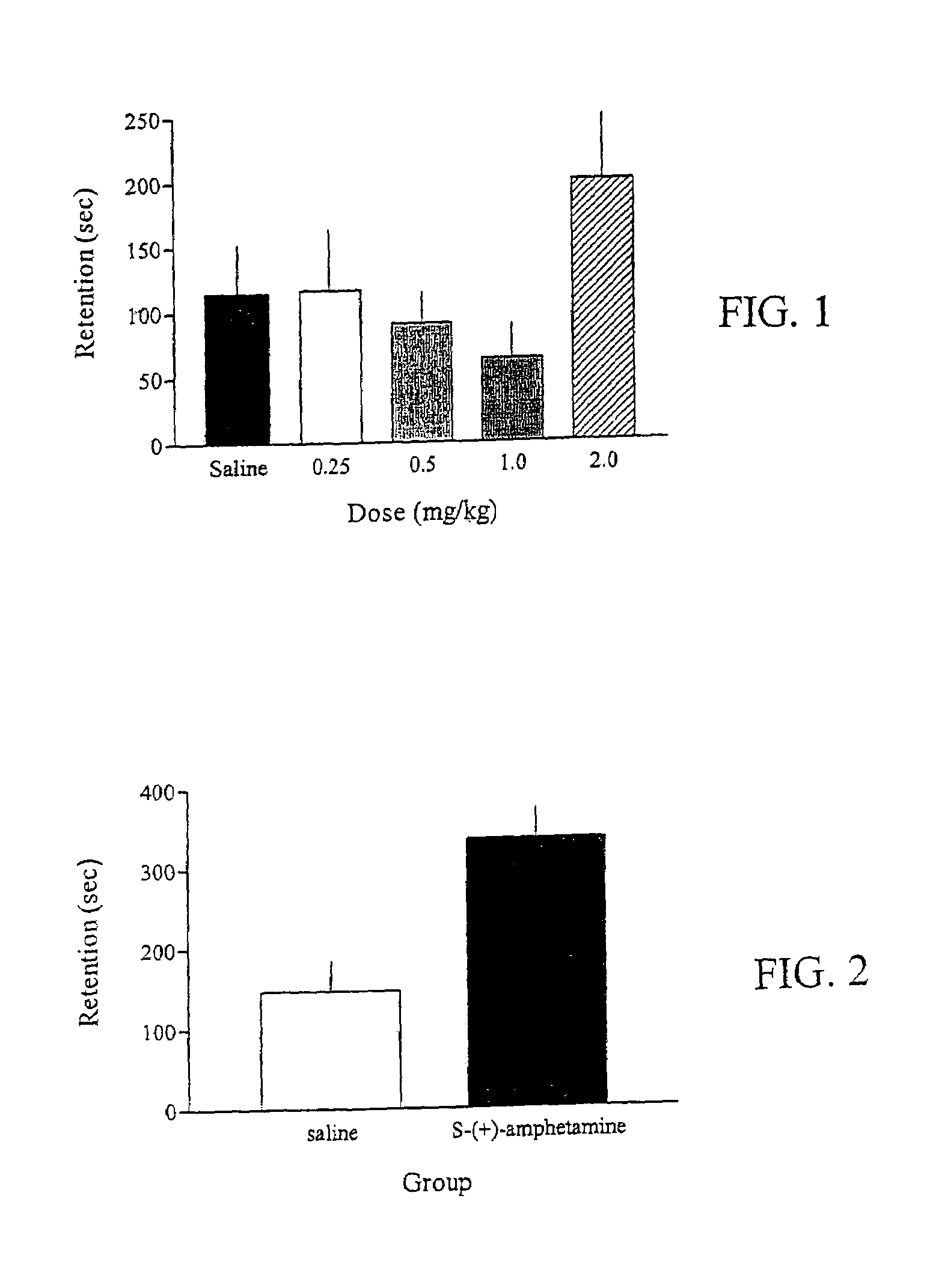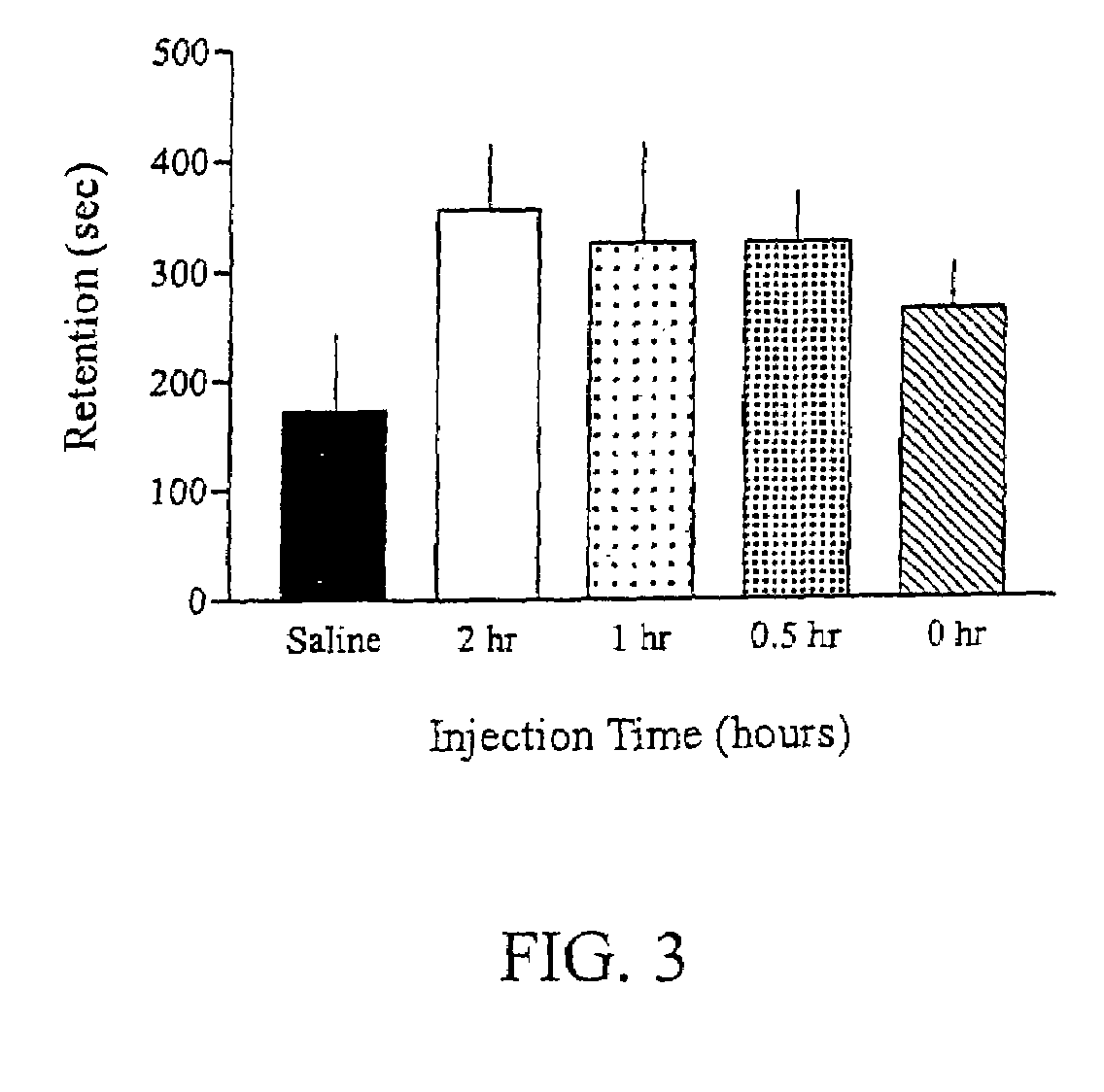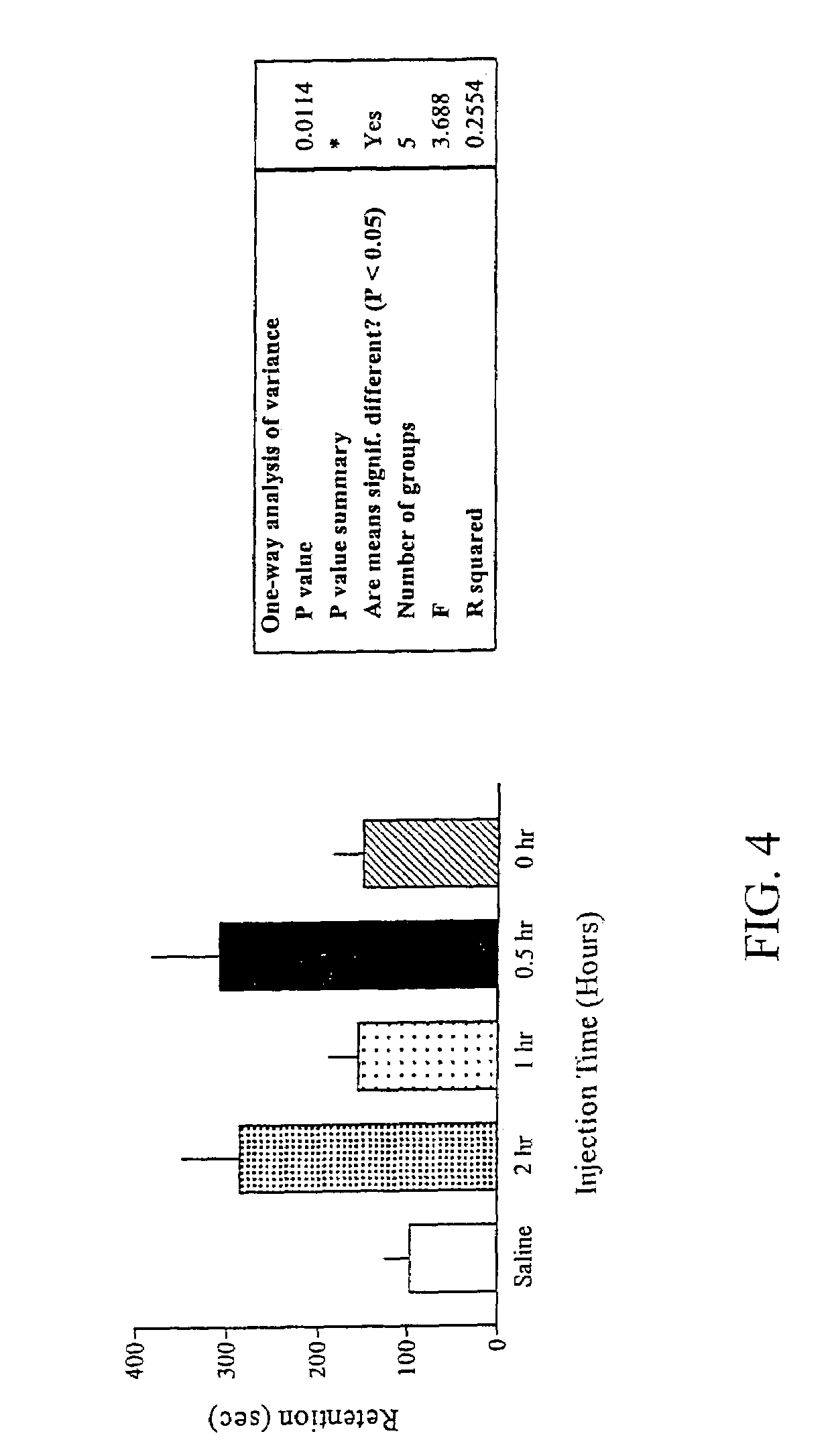Methods for treating an impairment in memory consolidation
a memory consolidation and impairment technology, applied in the field of memory consolidation impairment treatment, can solve the problems of human memory consolidation impairment, achieve the effects of improving short term memory, preventing and/or restoring long-term memory function and performance, and improving short-term memory
- Summary
- Abstract
- Description
- Claims
- Application Information
AI Technical Summary
Benefits of technology
Problems solved by technology
Method used
Image
Examples
example 1
Dose Response Testing
Effects of (S)-(+)-amphetamine on Inhibitory Avoidance
[0531]In this experiment, rats were injected with three different doses of (S)-(+) amphetamine thirty minutes prior to being trained on the IA task. As can be seen from FIG. 1, a dose of about 2 mg / kg of amphetamine improved retention of the task, while doses of about 0.25, about 0.50 and about 1.0 mg / kg had no effect. In order to verify this result, a second experiment was conducted. Rats were injected with about 2.0 mg / kg of amphetamine and trained on the IA task. As can be seen from FIG. 2, this dose of (S)-(+)-amphetamine significantly improved retention of the task. An unpaired t-test demonstrated that this enhancement was statistically significant (p<0.01).
Effects of (R)-(−)-amphetamine (C105) on Inhibitory Avoidance
[0532]The first experiment to be conducted using C105 was a dose response experiment, in which different doses of C105 (about 0.4, about 0.5, about 0.75, 1.0 and about 2.0 mg / kg) were admini...
example 2
Time Course of Effectiveness
[0535]In this experiment, the time of drug administration was varied in order to determine the optimal pre-training drug administration time. FIG. 3 shows that (S)-(+) amphetamine (2.0 mg / kg) is effective when administered to the rats between 0 and 2 hours prior to training.
example 3
[0536]This experiment was conducted in order to determine whether the enhanced retention observed in Experiment 2 was long-lasting. Rats received a second retention test one week after the first retention test. No additional training or drug was administered to the animals in the interim period. FIG. 4 illustrates that rats that had received (S)-(+)-amphetamine the previous week performed significantly better than rats that had received control injections of vehicle solution. (F(4,47)=3.688, p<0.01).
PUM
| Property | Measurement | Unit |
|---|---|---|
| thickness | aaaaa | aaaaa |
| w/w | aaaaa | aaaaa |
| diameter | aaaaa | aaaaa |
Abstract
Description
Claims
Application Information
 Login to View More
Login to View More - R&D
- Intellectual Property
- Life Sciences
- Materials
- Tech Scout
- Unparalleled Data Quality
- Higher Quality Content
- 60% Fewer Hallucinations
Browse by: Latest US Patents, China's latest patents, Technical Efficacy Thesaurus, Application Domain, Technology Topic, Popular Technical Reports.
© 2025 PatSnap. All rights reserved.Legal|Privacy policy|Modern Slavery Act Transparency Statement|Sitemap|About US| Contact US: help@patsnap.com



